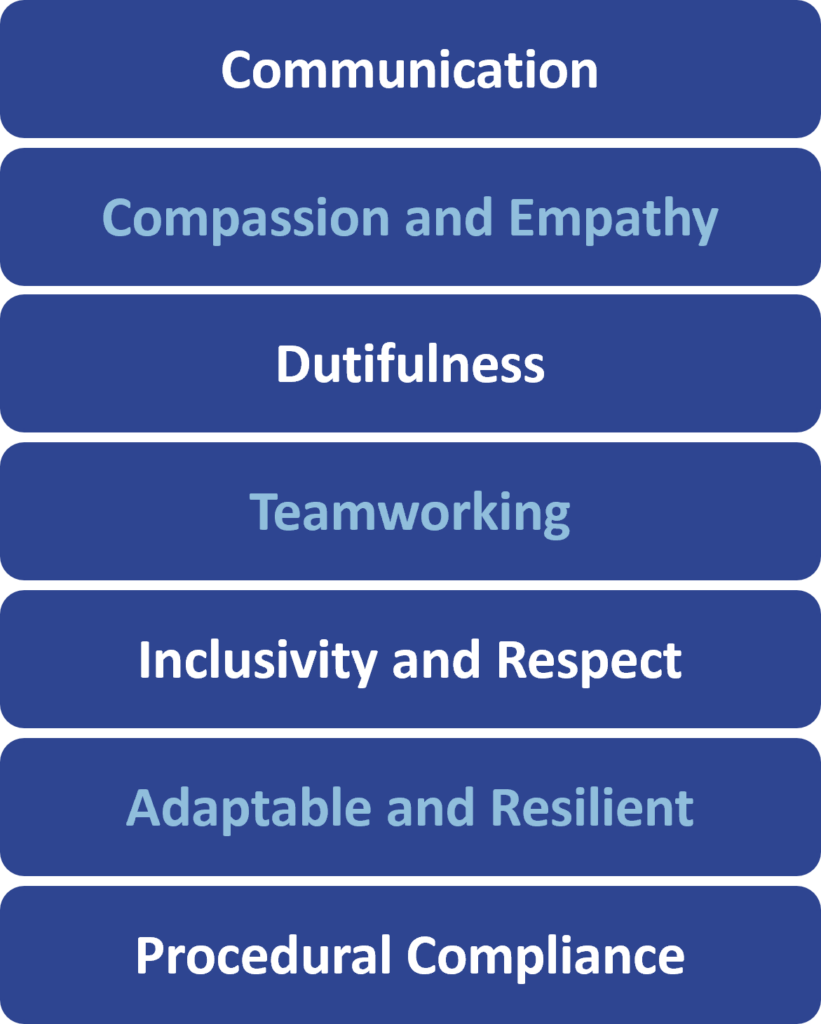 28
28Oct

Concept & Principles of VBR
How can care organisations apply assessment techniques to realise the benefits of a values approach to recruitment? This short commentary will address this question and highlight how Care Character’s 7 Qualities of Care can be used to better understand the alignment of candidate and company values.
The concept of values-based recruitment has foundations in healthcare settings. In the NHS, values-based recruitment is strongly embedded in candidate selection practices. The objective is to ensure that people recruited to provide healthcare demonstrate more than clinical and technical competence, and rather also hold and demonstrate the values of the NHS, such as compassion, working together, respect and dignity.
The principles of values-based recruitment (VBR) can be extended beyond clinical settings. For example, in the social care sector practitioners and professional associations also highlight the importance of embedding values for care in recruitment, and more widely there are lessons from research about the importance of employee and company values being aligned. Studies show that when people feel a fit between their own values and those of their organisation, they tend to be more committed in their work, feel more positive about their jobs, perform better and stay longer. In summary, taking care to establish that employee and company values are compatible has benefits for organisational and job effectiveness, staff retention and well-being.
What Are Values?
How can care organisations apply these ideas in their recruitment activities? To answer this question, it is first important to understand what values are and how they can be observed and reflected in assessment.
Personal values are broad desirable goals that motivate people’s actions and behaviour. They are enduring beliefs that represent guiding principles in people’s lives. Organisational values might be thought of as the goals or principles that people within the organisation are encouraged to pursue collectively.

In essence, VBR aims to select people into jobs and organisations in ways that provide an opportunity for both the candidate and the employer to understand if personal values are a good fit to organisational values. In doing so however, it is important to apply principles of effective selection assessment, emphasising robust and evidence-based techniques to avoid potential subjective bias in hiring decisions.
Values are often studied alongside personality traits and characteristics. Although values are not the same as personality traits, they are associated. For example, the personal value benevolence, important for caring roles, is associated with traits such as compassion and empathy represented in the broader personality domain of Agreeableness. Research also suggests that values are expressed in people’s behaviour, including in work settings. Selection assessments that draw on personality, especially when combined with interview assessment exploring behaviours, are therefore highlighted in academic reviews as relevant for inclusion in VBR approaches.
Using Care Character for Values-Based Recruitment
Care Character has been designed as a recruitment and selection assessment that measures the underlying characteristics needed for care. These are modelled to provide insights into the Care Character 7 Qualities of Care.
7 Qualities of Care

Realise the benefits of a values-based approach
Taking the assessment further, the Care Character report also includes detailed descriptions of the behavioural implications of the candidate profile, and extensive structured questions that can be used to assist in interviewing. In summary, through combining reliable and accurate assessment with detailed structured interviewing guidance, Care Character helps and enables organisations wishing to explore candidate fit in selection, and to ultimately realise some of the benefits of a values-based approach such as staff retention, commitment, effectiveness and well-being.

Professor Steve Woods
Chief Science Officer at Care Character and Professor of Work and Organisational Psychology, Surrey Business School, University of Surrey
References
Edwards, H., Kinirons, T., & Patterson, F. (2018). Values-based recruitment. Selection and recruitment in the healthcare professions: Research, theory and practice, 275-297.
Fischer, R., & Boer, D. (2015). Motivational basis of personality traits: A meta‐analysis of value‐personality correlations. Journal of personality, 83(5), 491-510.
Heaslip, V., Scammell, J., Mills, A., Spriggs, A.,
Addis, A., Bond, M., Latchford, &
Tee, S. (2018). Service user engagement in healthcare education as a mechanism
for value based recruitment: an evaluation study. Nurse education today, 60,
107-113.
Hoffman, B. J., & Woehr, D. J. (2006). A quantitative review of the relationship between person–organization fit and behavioural outcomes. Journal of vocational behavior, 68(3), 389-399.
NHS England (2024) Recruitment based on the NHS Constitution: Values-based Recruitment. Retrieved from https://www.hee.nhs.uk/our-work/values-based-recruitment. October 2024.
Parks, L., & Guay, R. P. (2009). Personality, values, and motivation. Personality and individual differences, 47(7), 675-684.
Patterson, F., Prescott-Clements, L., Zibarras, L., Edwards, H., Kerrin, M., & Cousans, F. (2016). Recruiting for values in healthcare: a preliminary review of the evidence. Advances in Health Sciences Education, 21, 859-881.
Sagiv, L., Roccas, S., Cieciuch, J., & Schwartz, S. H. (2017). Personal values in human life. Nature human behaviour, 1(9), 630-639.
Woods, S. A., & West, M. A. (2020). The Psychology of Work and Organizations. Cengage.

